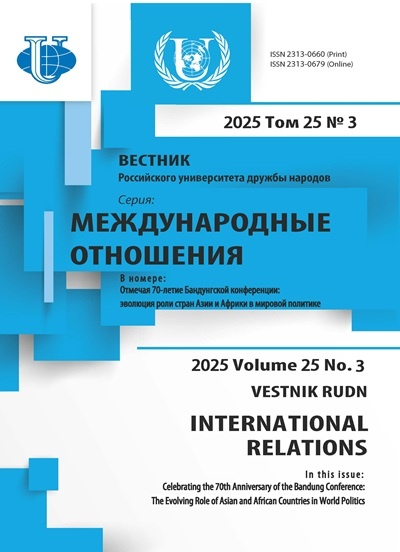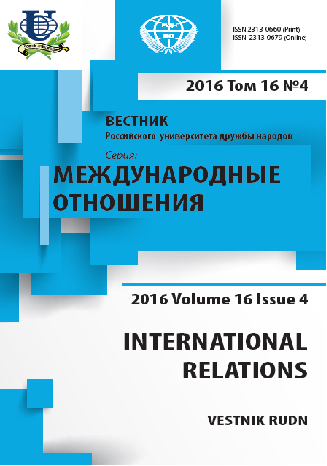Российско-иранские отношения на современном этапе
- Авторы: Филин Н.А.1, Раванди-Фадаи Л.М.2, Бурова А.Н.3
-
Учреждения:
- Институт Африки РАН
- Институт востоковедения РАН
- Российский государственный гуманитарный университет
- Выпуск: Том 16, № 4 (2016): Иран и Индия в системе международных отношений
- Страницы: 677-687
- Раздел: СТАТЬИ
- URL: https://journals.rudn.ru/international-relations/article/view/15441
- DOI: https://doi.org/10.22363/2313-0660-2016-16-4-677-687
- ID: 15441
Цитировать
Полный текст
Аннотация
Период после распада Советского Союза Россия и Иран пережили несколько достаточно резких поворотов в двусторонних отношениях. Периоды активного диалога сменялись продолжительными паузами, подписание многомиллиардных контрактов сменялось обвинением обеих сторон в невыполнении взятых на себя обязательств и обещаний. Геополитические интересы при этом превалировали над экономическими. В статье подробно разбирается роль иранского вопроса в российско-американских отношениях, как в рамках комиссии «Черномырдин-Гор», так и по иранской ядерной программе и поставкам системы С-300. Затрагивается вопрос правового определения статуса Каспийского моря. Вместе с тем есть ряд объективных факторов, сближающих страны. Среди них необходимость борьбы с этническим сепаратизмом, а также шоковые экономические реформы, начатые практически одновременно в России и Иране в начале 1990-х гг. и приведшие к росту социальной напряженности. Обе страны заинтересованы в поддержании мира и стабильности на территории бывших советских республик Средней Азии, Кавказа и в Афганистане. В июле 2005 г. Иран получил статус наблюдателя при Шанхайской организации сотрудничества (ШОС). С возвращением на пост президента России в 2012 г. Владимира Путина наблюдается улучшение российско-иранских отношений. Наметился ряд положительных тенденций и в торгово-экономических связях, реализации совместных экономических проектов.
Ключевые слова
Об авторах
Никита Александрович Филин
Институт Африки РАН
Автор, ответственный за переписку.
Email: nikitafilin@yahoo.com
Москва, Россия
Лана Меджидовна Раванди-Фадаи
Институт востоковедения РАН
Email: ravandifadai@yahoo.com
Москва, Россия
Анна Николаевна Бурова
Российский государственный гуманитарный университет
Email: burova-denjak@mail.ru
Москва, Россия
Список литературы
- Арунова М.Р. Исламская революция и российско-иранские отношения // Ближний Восток и современность. 2004. 21
- Мамедова Н.М. Россия и Иран в конце первого десятилетия ХХI века: противоречия и взаимные интересы. Институт Ближнего Востока. 12.03.2012. URL: http://www.iimes.ru/rus/stat/ 2012/21-03-12.htm (дата обращения: 13.06.2016)
- Трофимов А. Анализ взглядов руководства Ирана на военно-техническое сотрудничество и перспективы России в регионе. Институт изучения Израиля и Ближнего Востока. 10.04.2003. URL: http://www.iimes.ru/rus/stat/2003/10-04-03.htm (дата обращения: 13.06.2016)
- Филин Н.А. Социально-историческое развитие Исламской Республики Иран (1979-2008): факторы устойчивости государственной власти. М., 2012
- Karami J. Iran-Russia Relations: Expectations and Realities // An Iranian Quarterly. 2010-2011. 9 (3-4)
- Kozhanov N. Russia’s Reations with Iran: Dialog without Commitments. Washington: Washington Institute for Near East Policy, 2012a
- Kozhanov N. Russian-Iranian Economic Relations: Opportunities and Challenges // The Maghreb Review. 2012b. 37(3-4)
Дополнительные файлы










